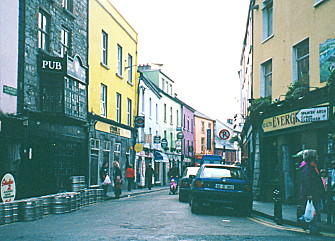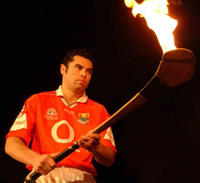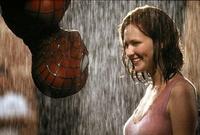"I knew a man, his brain's so small,
He couldn't think of nothing at all,
Not the same as you and me.
He doesn't dig poetry.
He's so unhip that when you say Dylan,
He thinks you're talking 'bout Dylan Thomas,
Whoever he was.
The man ain't got no culture,
But it's alright, Ma, everybody must get stoned."
Paul Simon, "A Simple Desultory Philippic," 1966.
By the time the wide world over realised that Bob Dylan was a prophet, Dylan had moved on from the prophet business. By the time Blonde on Blonde came out in 1966, the Dylan mythos, so neatly parodied by Paul Simon on Simon and Garfunkel's Parsley, Sage, Rosemary and Thyme, released a month or two before, had begun to cannibalise itself. When people went to record stores the Bob Dylan they were looking to buy was the spokesman-of-a-generation Dylan, the Dylan that wowed Newport in 1963, the God-on-our-Side Dylan, the Dylan that was blowin' in the wind. That Dylan wasn't there anymore; it's hard to say if that Dylan was ever really there in the first place.
The great Liam Clancy made the point in that marvellous Martin Scorsese documentary on BBC2 last night that in the early sixties folk scene, Dylan acted as a lightning rod for that folk movement's hopes, fears and ambitions, and people saw in Dylan a reflection of just what they came looking for in the first place. How much of anything other than people's own reflected ambitions was ever in Dylan in the first place is very difficult to say, but a reasonably educated guess might posit: not much.
It is entirely possible that the Voice of a Generation went to New York like a many footlight-dazzled youth before him - he didn't know what he wanted to be exactly, except that he wanted to be a Star, and he knew that he had to go to New York for that to happen. He didn't sign up for preaching, he was just there to the play the guitar and sing.
Dylan writes vividly of the picaresque adventures of his arrival and early years in New York in Chronicles, the memoir that came out last year to the acclaim of the Dylan generation, who had heard news from Elba at last and received it ecstatically. The most fascinating thing we learn about Dylan from reading Chronicles is just how much Bob Dylan despised being in the Bob Dylan business; by the late 'sixties Dylan himself was thoroughly fed up with the whole thing, and admits making awful records that his Church would then waste kilowatts and kilowatts of mental energy trying to figure out, recounting with glee just how many brain cells they'd burn just trying to figure out the title of his 1970 record, New Morning, actually meant. What is Bob trying to tell us now? Where is our message?
It's in the phrases that Dylan's strongest claim to greatness lies, and as a phrasemaker Dylan has few equals. However, by the time Dylan had been crowned the spokesman of his generation, he had less and less to say to anybody. Dylan's greatest message song is God on our Side, a song that stands out in any company - the two most famous of his message songs, Blowin' in the Wind and The Times They Are a Changin', are so simplistic that even a bearded and sandaled hippy priest would have his doubts about including them in a folk Mass for the Young People. Those songs are lyrically poor in the extreme. Dylan's great songs of his golden period in the mid-sixties, the eighteen months that spanned the release of his three greatest records, Bringing It All Back Home, Highway 61 Revisited, and Blonde on Blonde, all sound fantastic but very few people know what they mean. An Spailpín Fánach, for one, hasn't a rashers, and he's willing to bet that old Bobby himself hasn't much of a clue either. But they certainly do sound pretty.
Desolation Row is one of Dylan's great songs, chiefly because it's a electric-folk song that sounds like it's slumming it from a opera - there are not many of those around. But what makes Desolation Row as a song isn't the lyric; it's those two lovely guitar riffs, the Spanish-sounding climbing one at the start, and the one that comes in at the end of each verse, that makes you feel like you're being slapped, but in a good way.
In the lyric, the imagery sings beautifully and sounds gorgeous (for what is a song but a collection of sounds?), but the words make no sense at all. A very great man and a friend of An Spailpín used to include Desolation Row in his sets when he took his guitar up on stage, but he told me it was practically impossible to remember the words, as nothing followed anything in any sort of order.
The talking heads on Mark Lawson's Newsnight Review couch last Friday were all aquiver at the thought of a Dylan documentary "by" Scorsese, but it struck me that that nice young Mr Friction was only being polite, while the more elderly members of the panel were desperately hoping that their youths were not in vain. They turn their lonely eyes to him as the nation did to Joltin' Joe but Dylan has long ago moved on. The Voice of a Generation is actually its Cheshire Cat, with nothing left but his simile. The carpet, too, is moving under you, and it's all over now, baby blue.







